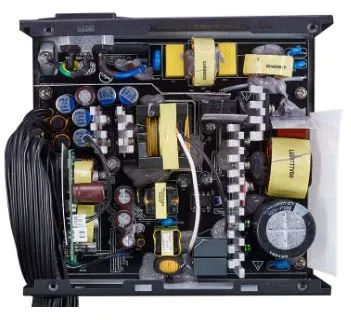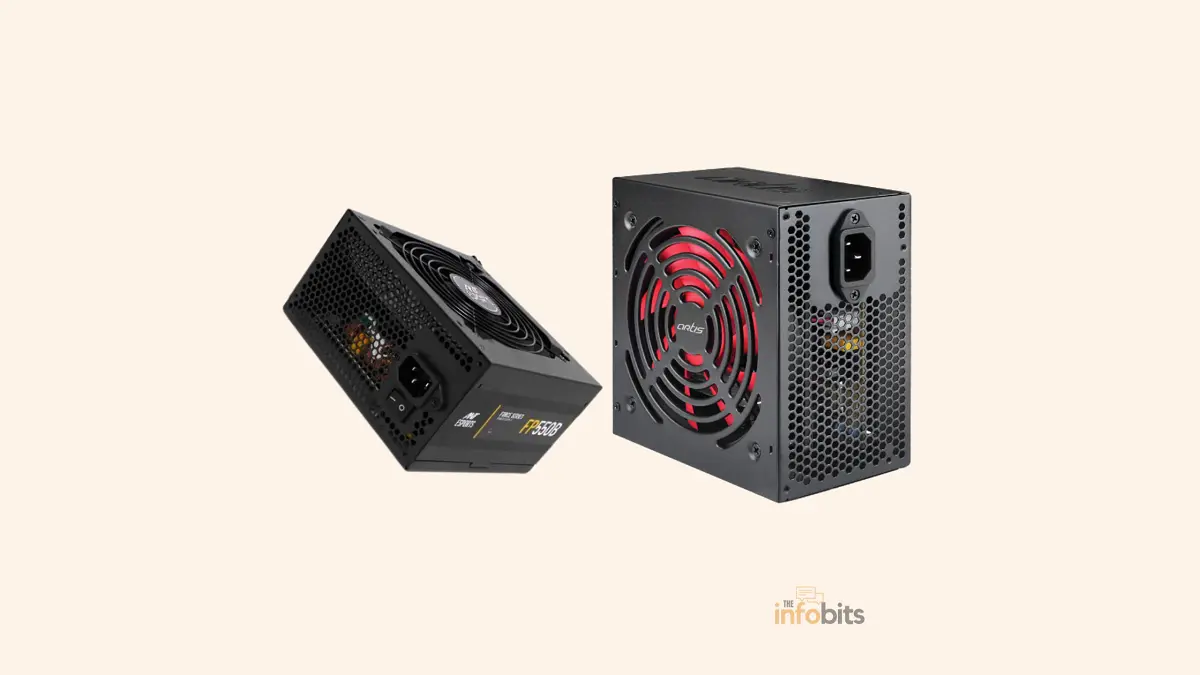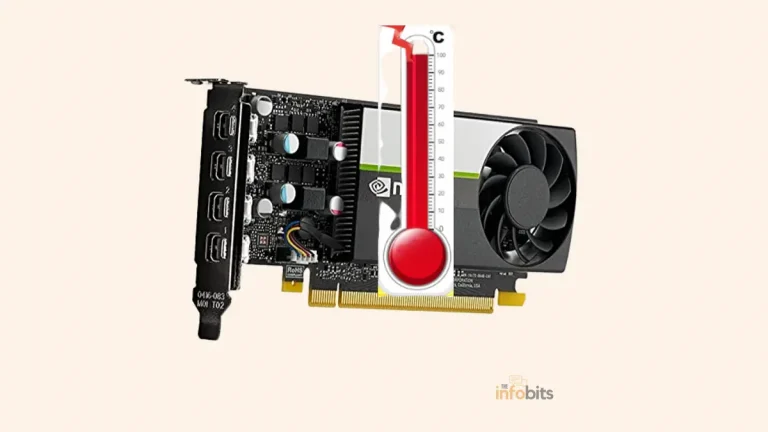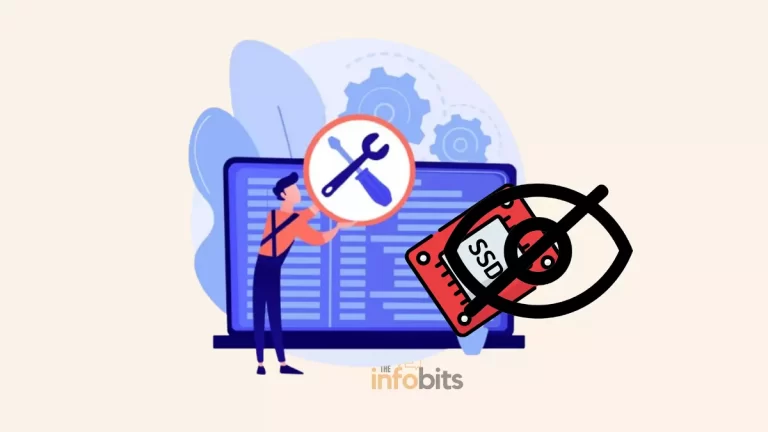How Long Do PC Power Supplies Last, and How Can We Increase PSU Lifespan?
A Power Supply Unit (PSU) provides power to all components of a computer. There are numerous aspects to consider while selecting the ideal PSU for your needs to have a long lifespan.
Even though we choose a decent PC power supply unit, its longevity is determined by the nature of our PC usage, the frequency of maintenance, and, most importantly, the quality of the components used in the PSU.
How Long Does PSU Last?
In most cases, when utilized as intended, most excellent power supplies on the market last a minimum of 5-6 years.
In some situations, we discovered that it may have increased to ten years. Power supplies from top manufacturers, such as Corsair, may endure for 10 years or more.
As we explained in the beginning, the longevity of a PC power supply unit is determined by various factors, including the quality of the PSU components, how frequently it is used, and how much power your system consumes.
The Function of a PC Power Supply Unit
As we all know, one of the most important components of a computer is the power supply, which converts energy from a wall outlet into usable DC voltage with outputs generally ranging from +12 Volt to +5 Volt to 3.3 Volt, and in older power supplies, -12 Volt to -5 Volt.
Various subcomponents in the motherboard and other internal components need different DC voltages.
While a laptop does not have a fully dedicated power source like a desktop computer, it does require a power adaptor to produce a DC voltage to charge the internal battery.
PSU Durability Factors for a Longer Life
Replace the PSU at the Proper Time
However, if large loads are applied to periods over lengthy durations, the power supply may become overstressed.
After a long period of usage, a power supply unit’s efficiency would most likely begin to deteriorate, perhaps leading to system instability.
The major reasons for this deterioration include worn capacitors and other components, power surges, heat, and other physical stresses.
As a result, we recommend that everyone take action sooner (at least after 6 years of usage) to enhance the correct operation of their computer. It is preferable to replace the existing PSU in the system after five years.
Most users, however, choose to replace their PC power supply until they fully fail. After five years of peak performance, certain internal components, such as capacitors, will begin to degrade and fail to work properly.
As a result, system efficiency suffers, and even if the power supply operates flawlessly, the average user is unaware of the little influences affecting the system.
More serious symptoms of an aging power supply unit include freezing, sudden restarts, or shutdowns.
Given how affordable computer power supplies are, it appears to be a smart decision to just replace the computer power supply with a new one.
Maintain the PSU Properly
Limiting high-stress activities is the only realistic way to extend the life of your power supply.
Mining cryptocurrency, for example, is a very stressful process on the CPU and power supply. Similarly, overclocking your CPU or GPU may put a greater load on your power supply unit.
As a result, you should prevent overclocking by selecting the appropriate hardware with the necessary rating. The key to having a PSU and its PC that lasts a long time and is trouble-free is to do regular maintenance on it.
So, once you’ve decided on a PSU or if you already have one, you should know how to clean it. It is preferable to clean your computer every three to four months.
Always shut down your computer fully before operating within it. Turn off and unplug the main power source, and ensure that any potential static charge is discharged by touching a metallic earth strip.
This prevents you from being shocked by the PC parts or breaking one of your PC components. If you want to go above and beyond to avoid providing static energy to your components, an Anti-Static Wrist Strap is an alternative.
You may also avoid static charge accumulation with the aid of this small object. All of these are safeguards you should take before accessing internal PC components.
Important Factors in PSU Selection
Brand
Keep in mind that you should always get a high-quality PSU model from a reputable manufacturer. Many generic models are costly and have low-stress threshold limits.
A PSU’s poor physical state may result in rapid aging. Consider the fact that the majority of the brands do not manufacture their power supply units.
They purchase power supplies from prominent power supply OEMs. Because of this method, the quality of PSU units may vary, even within the same PC manufacturer.
Continuous Power Rating
Another thing to consider when assessing a PSU’s power rating is whether it is rated for peak or continuous watts.
Peak wattage is the maximum power a power supply unit can deliver and is never a constant measurement.
This means that a 750W peak power supply will only give a consistent 550-600W of electrical power. As a result, you should always choose a power supply rated for steady or continuous wattage.
If you can’t find out if a power supply is rated for continuous watts or not from the box, consider contacting the manufacturer directly.
A constant wattage rating is provided by the majority of high-quality PSU brands.
Efficiency Rating
Looking for product certification is one of the quickest and easiest ways to guarantee the quality of a power supply.
If you’re familiar with PC power supplies, you’ve undoubtedly seen the “80 Plus” rating followed by Bronze, Silver, Gold, or Platinum.
In layman’s words, this number shows a power supply’s efficiency and the quantity of electricity converted to heat. That is, an “80 Plus Gold” PSU uses less energy than an “80 Plus Bronze” unit.
Related Reading:
How to Find the Power Supply of Your PC?
What Are the Things to Upgrade on PC to Improve Its Performance?
Impact of Internal Components on the Lifespan of a Power Supply
As previously stated, the quality and longevity of a computer power supply are mostly determined by the quality of its internal components.
In this case, it is preferable to break things down further to generate a clearer picture by looking closely at the many parts that comprise a power supply.
We already have a general guideline for the longevity of a PC power supply. A PC power supply is primarily made up of a circuit board with components integrated and soldered onto it.
The PSU metal enclosure also has a cooling fan to keep components cool, which is a must-have element for a power supply unit. Let’s go through each PSU component one by one.

Inductive Components
These are frequently some of the most dependable elements in a power supply. In these coils, inductors, and transformers, enamel-coated copper wires are wrapped around a magnetic, ferrite, or plastic core.
Some inductors may be manufactured and attached to the PCB without using a core (air core).
These parts are unlikely to be problematic in a computer’s power supply unit unless they have been physically harmed.
Integrated Circuits (ICs)
Many factors influence an integrated circuit’s longevity, including the circuit’s design, how effectively a supply line is smoothed, how consistently constant a voltage supply line is under dynamic changes, and how much load the IC is carrying.
In perfect conditions, ICs may live for a very long time. However, like with any other semiconductor component, ICs are susceptible to rapid or gradual damage as a result of functioning in a high-temperature environment or using incorrect power input.
If they have poor manufacturing standards, the deterioration will be accelerated. In this category, reputable IC manufacturers are excellent, but it will not be the sole factor deciding their lifetime.
MOSFETs, Transistors, and Diodes
In addition to the aforementioned components, other semiconductors such as MOSFETs, transistors, diodes, and voltage regulators are required for a computer PSU to function properly.
When it comes to power management with greater currents, semiconductors such as MOSFETs and transistors perform a lot of the work.
Regulators are electronic components that receive input voltages and generate the needed constant voltage output for a certain component.
However, as a result of repeated heating and cooling cycles, these components lose efficiency with time and may develop internal leaks. This will cause these semiconductor components to be damaged.
Capacitors
Aluminum electrolytic capacitors are commonly found in computer power supplies. These capacitors are made of pure aluminum foil and have an aluminum oxide dielectric.
This is likely one of the most common elements to fail in a power supply. It is difficult to determine the lifespan of an electrolytic capacitor.
As these components age, the capacitance value varies, affecting how effectively your power supply functions in contrast to how it was designed.
The slow breakdown or evaporation of the electrolytes after a specific period is the primary cause of the change in capacitance value.
When a computer works for an extended period on resource-intensive tasks such as gaming, 4K editing, or mining, the computer power supply must equally work hard and put in a lot of effort.
In this instance, all of the PSU’s components, including the capacitors, are working at a somewhat high operating temperature.
Continuous running at high temperatures causes progressive value deterioration of capacitors and may result in PSU failure.
Other components, such as semiconductors and resistors, may get hotter when capacitor values fluctuate, depending on the circuit’s design. As a result, their life expectancy is reduced.
Resistors
The usual carbon resistor used in the computer power supply is another component that may lose value over time.
Because resistors continuously convert electrical energy to thermal energy, their value may gradually begin to climb.
Although this increase does not generally have the same negative impacts as a capacitor, it may cause the PSU to operate incorrectly or inefficiently.
When a resistor’s power rating is insufficient, the deterioration process is accelerated. Continuously using these resistors over an extended time may lead them to fail and stop supplying power to the PSU’s semiconductor components.
Cooling Fans
A cooling fan in a power supply unit normally lasts 3 to 5 years. However, the constant operation of a fan generates wear and tear on its internal components, especially the rotary bearing.
A cooling fan’s speed and efficiency are also reduced when dust accumulates. Fans get noisy and consume more power as they age.
If the cooling fan fails to function correctly, the temperature in the PSU cabinet will rise, causing total damage to the internal components.
Common Cause of PSU Failure
We’ve seen how each PSU component wears down, failing the PC power supply. Even though there are several potential causes for a power supply unit to fail, power surges are one of the most common.
Let’s look at ways to avoid it or at least lessen the risk. The power supply is subjected to surges of significant stress in the form of incoming or outgoing current when the mains power rapidly turns off and on owing to weather conditions or an unstable local power grid.
In this instance, it is preferable to utilize a Surge Protection Device in your power supply to safeguard your computer against transient voltages.
If you live in an area where power outages are common, you might consider purchasing an Uninterruptible Power Supply (UPS) device. Even if they only survive a short time, this innovative compact device acts as a power backup alternative.
Furthermore, some of the most recent UPS models provide surge and spike protection. This will assist in protecting your system in the event of electrical transients.
Your power supply will not be subjected to the full burden of the rapid voltage swings.
Uninterruptible power supplies are not intended to be utilized for lengthy periods; rather, they are intended to offer a few more minutes to shut down your system if the power goes out altogether.
Conclusion
As you have seen, there are several variables to consider when estimating the longevity of a computer power supply. It is difficult to specify a certain age since some elements are so unexpected.
You’ve probably observed that there is no straightforward answer to the question of how long PSUs last. We made certain to address all of the many factors that have a direct impact on the longevity of the PSU.
If you’re searching for an answer to betting, we’d suggest the average lifetime is 4-6 years.
Finally, if you’re looking for a power supply for your system, make sure you pick the best one you can afford rather than attempting to save money on it.
It will last at least 10 years if used properly and maintained regularly. But don’t forget to change it after 5-6 years of proper use.
Frequently Asked Questions
How long does a power supply last?
A good quality PC power supply can last for up to 4-5 years without issue. There are numerous cases where the PSU is still operational after ten years.
How often should you replace a PC power supply?
Typically, PC power supplies are designed to last four to five years. In some cases, it may work for a longer period. However, for the best performance of other PC components, it is recommended that you replace your power supply every 6 years.
Should I replace PSU after 10 years?
Yes. It is preferable to replace it.
How do I know if my PC power supply is dying?
When a power supply becomes old, system efficiency suffers, and even if the power supply is in perfect working order, the average user is unaware of the minor influences affecting the system. Freezing, sudden restarts, or shutdowns are more serious symptoms of an aging power supply unit.
Do computer power supplies wear out?
Yes. Computer power supply components might deteriorate or wear out and need to be replaced over time.
We hope you found this article helpful, and do Sign up for our free newsletter to receive new information right in your inbox In addition, we ask that you bookmark this page for future reference.







